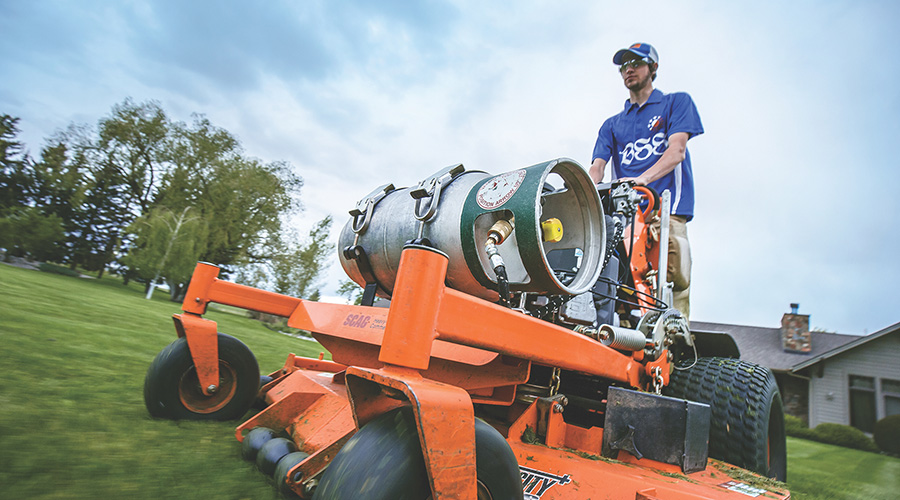Liquid-Propane Injection Systems Offer Same Horsepower, Torque as Gasoline
A growing number of grounds departments are considering on-road vehicles powered by propane that offer quality performance, fuel efficiency, and sustainable features.
For example, propane-fueled pickup trucks emit lower levels of carbon and greenhouse gases than their gasoline counterparts. On average compared to gasoline engines, using propane vehicles reduces greenhouse gas emissions by 19 percent, cuts nitrogen-oxide emissions by 20 percent, lowers carbon-monoxide emissions by up to 60 percent, and decreases particulate emissions.
New liquid-propane injection systems used on some propane-fueled trucks offer the same horsepower, torque, and towing capacity as the gasoline versions.
Finally, a federal tax credit of 50 cents per gallon may be available for propane-powered on-road vehicles and forklifts.
Making operational choices that are environmentally sound is more important for managers than ever. Building occupants and visitors demand it, and equipment operators feel better about working for organizations that practice environmental stewardship.
By adopting propane and other low-carbon energy sources that reduce greenhouse gases, improve air quality, lower energy costs, and reduce reliance on foreign oil, managers can help improve the environment. Propane-fueled mowers and other pieces of grounds equipment can help meet these challenges. With propane-fueled mowers’ optimal performance, reduced fuel costs, and minimal environmental impact, many consider them to be a cut above the rest. •
Brian Feehan is vice president of the Propane Education & Research Council, which promotes safe, efficient use of odorized propane gas through consumer and employee education, and technology development and commercialization. For more information on propane-fueled grounds equipment, visit www.propanecouncil.org/mowers.
Related Topics:













